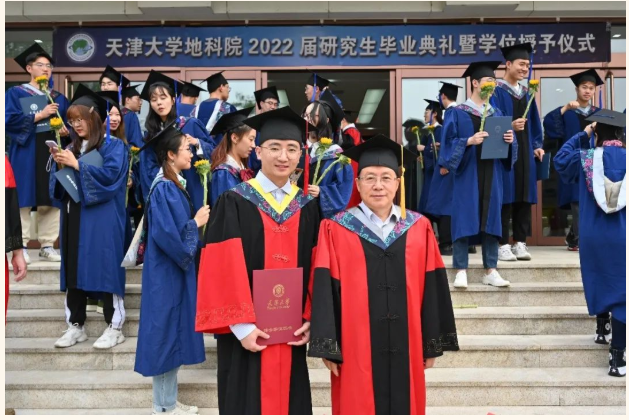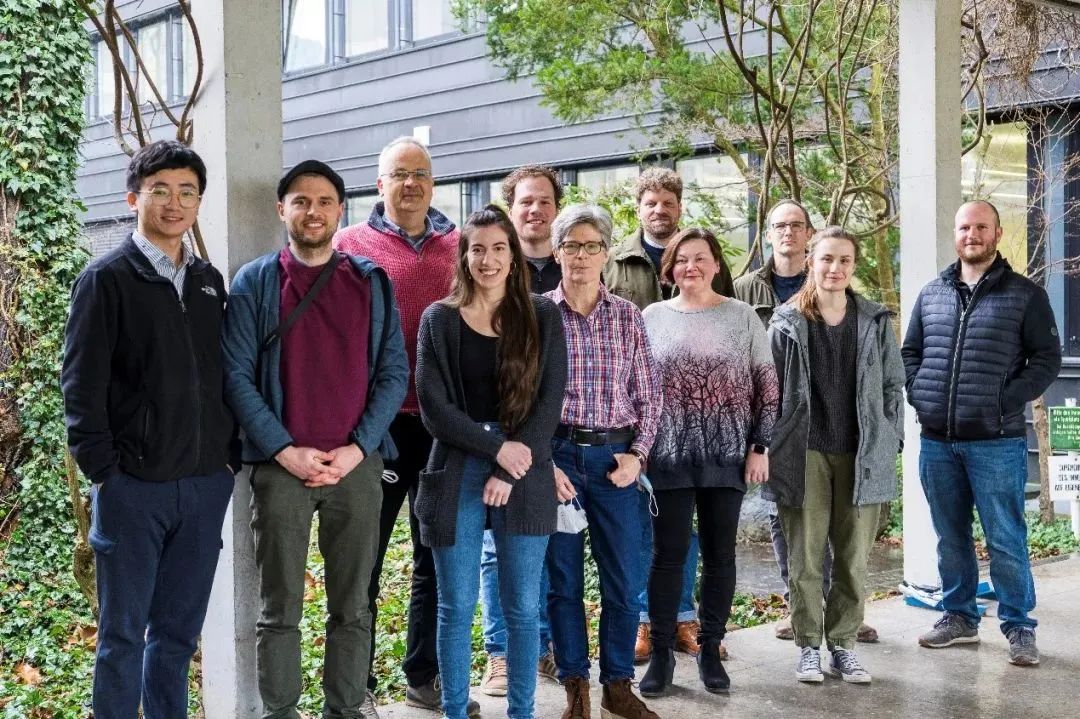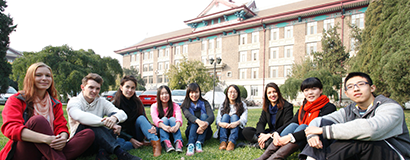Yang Ye is a novice teacher recruited this year at Tianjin University after he gained the doctoral degree from the university’s School of Earth System Science. He has a lot to share as a student “veteran” and a stella student who has won twice the National Scholarship as well as the title of “Merit Students” and “Excellent Graduates” of the university. His doctoral dissertation entitled Quaternary landscape evolution of the eastern Tibetan Plateau: insights from in situ cosmogenic nuclides was rated as the excellent doctoral dissertation of Tianjin University in 2022. Below is an interview with Yang Ye about his academic and life experience in Tianjin University as a student. There is some editing for clarity.
Q: For your postgraduate study, why did you choose the School of Earth System Science of Tianjin University in the first place?
A: During my undergraduate study in China University of Geosciences (Beijing), the traditional geology discipline was not as popular as before in employment market. Upon graduation, Liu Congqiang, academician of the Chinese Academy of Sciences (CAS) helped found the School of Earth System Science (SESS) in Tianjin University. As far as I know, geology was among the first batch of disciplines Tianjin University fostered when it was established in 1895 as the first modern university in China. Then the whole department was dispatched to other universities during the national resetting of schools and colleges in 1950s. In this sense, Tianjin University has a rich legacy of geological study. That, when combined with Academician Liu’s pioneer research idea in earth system science, it became an irresistible reason for me to come here.
As an interdisciplinary institute, the School of Earth System Science in Tianjin University, is full of vitality, where everyone, be its teachers or students, is constantly striving forward and making innovations. I chose to study the earth surface system on the basis of traditional geology, a new direction that fully conformed to my research aspiration.

Yang Ye (left) and Liu Congqiang (right), dean of the School of Earth System Science and academician of the CAS
Q: You just mentioned the vitality and believe in a bright future of the school, so what has the school provided for your personal development?
A: Quite a lot. First of all, I have been given many exchange opportunities to study abroad, learning multiple ways to do research on world-class platforms, which is a very important experience. I have been to the University of Strasbourg in France, the University of Glasgow in England and the University of Cologne in Germany. These exchange experiences really enriched my way of thinking when approaching research issues. Studying abroad also enabled me to better conduct my own research with due equipment since some important experimental equipment was yet to be introduced due to laboratory rebuilding and upgrading in the initial period of our new school. Now, all kinds of advanced equipment have been fully equipped here, meeting anyone’s need to conduct independent experiments.
The second point is my teachers’ strong support, without which it would be difficult for me to have such overseas exchange experiences. They seem always ready to answer students’ doubts in daily scientific research, which is critical to our development. Thanks to their strong support, students like me can improve ourselves in a very favourable environment.

The last point is the opportunity to participate in scientific research projects. We learn and improve a lot when involved in the actual research process. With my teachers’ encouragement and support, I have obtained some scientific research projects during my graduate study, such as the “Tianjin University Cultivation Project” and the “Tianjin Municipal’s Postgraduate Research Innovation Project”. These valuable experiences honed my skills to do scientific research and laid solid foundation for my personal development.
Q: Speaking of the opportunities your tutor and the school offered, we learned that you once participated in the “Second Comprehensive Scientific Survey Project on the Tibetan Plateau” with your tutor. What challenges did you meet during the survey? And what impact and inspiration does it have on your study and life?
A: It is very challenging, physically and mentally, but also quite beneficial. You got to know many wonderful people and working together with them is a rewarding experience.

The influence on me is huge. For my research, I collected a lot of samples, on which in-depth analysis was made in the later study to enrich my doctoral thesis. The whole process also gave me an idea on how to do field work and experimental research. More importantly, I was deeply touched by the rigorous and practical attitude the fellow seniors in the team showed during the survey, and their words and deeds had an enduring impact on my later study and work.
Q: You just mentioned that the seniors passed on their experimental experience to the next generation without reservation. And obviously, it is because of the dedication of our predecessors that our country keeps moving forward and more and more talents of the new era shine on the international stage. The development of the country cries for better cultivation of talents. So, what qualities and merits do you think Chinese youth should have?
A: In my opinion, “truth, kindness and beauty” are the merits I expect to see in Chinese young people. By “truth”, I mean that our young people should seek truth from facts as our university motto advocates and be down-to-earth. See more, learn more, and think more before following the herd. Critical thinking is important for us to tell right from wrong.
And we’d better learn to be friendly and kind to others. Be a good man first, do your work well and then be a good researcher.
“Beauty” here does not refer to good looks, but the ability to find and appreciate beauty in daily life. Don’t rush to judge people solely based on personal experience. People are different, and there is no universal rule to follow. Try to empathize with people more and see good in people. You will find the world a much better place if you do so.
Q: Thank you for sharing so much with us. What other advice do you have for younger students?
A: Recalling my college life, I’d like to share four more life tips with you. The first is to be brave, brave enough to try out new things. Many students tend to think less of themselves when applying for scholarships or universities for further study. They may flinch at the thought of competition. We have to overcome this lack of self-confidence because you never know what you are capable of unless you have tried bravely.
The second is to enhance our communication skills. We shall learn to communicate with teachers, classmates and partners. Instead of trudging along all by yourself, communication and cooperation make things easier.
The third is to be down-to-earth. Don’t be a giant in thought and a dwarf in action. Some one I knew read 2,600 papers when he was pursuing the bachelor’s degree. That set a good example for me. Scientific research requires a lot of paper reading before problem finding and solving eventually. Settle down and do what you have to do. It really matters.
My last advice is to make plans. Try to figure out a clear plan for future. As far as I am concerned, the first-class experimental conditions and the excellent scientific research team the university provides are all factors affecting my plan making, one that led me to develop my career at home. Make a plan and march forward toward it.
Chinese version by Guo Yiming, An Zhenguang, Yang Xikai
English version by Lv Qiuhe & Zhang Yiru
Editor: Eva Yin






